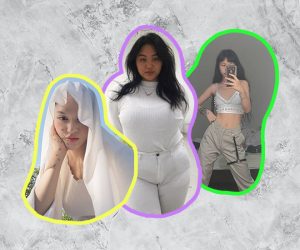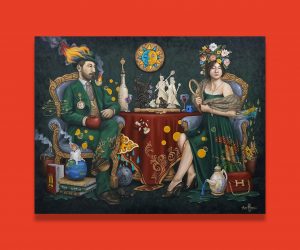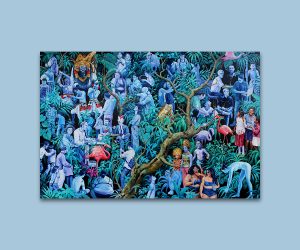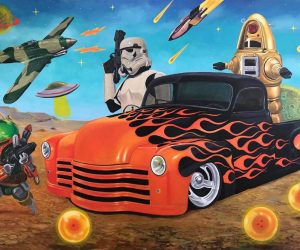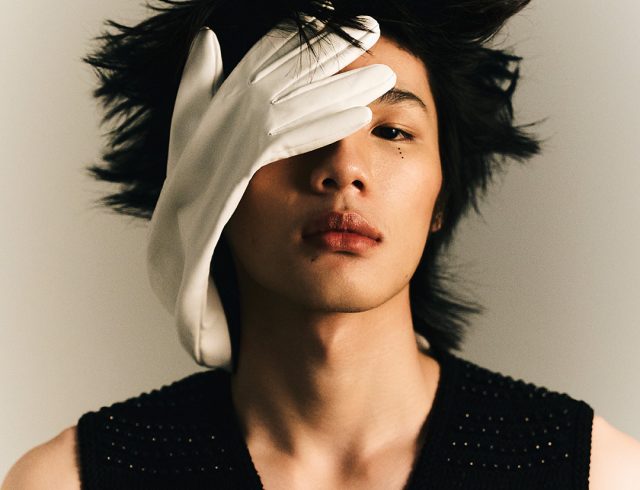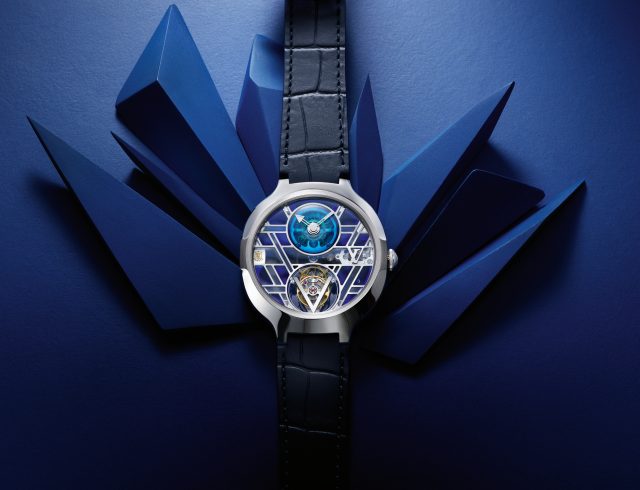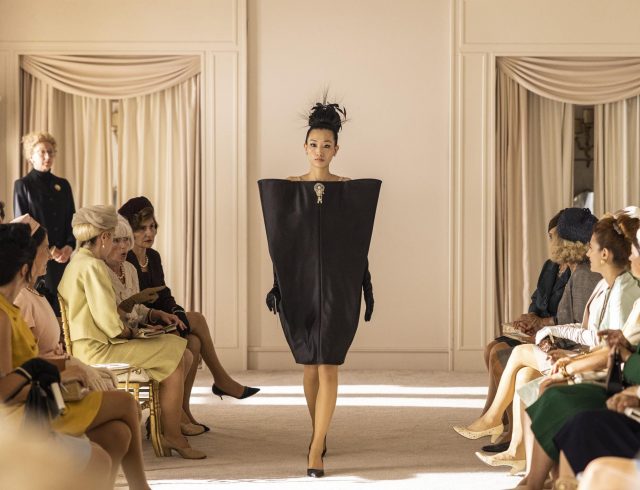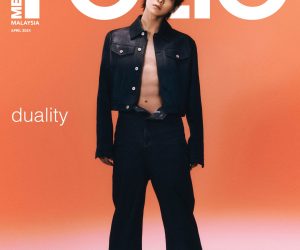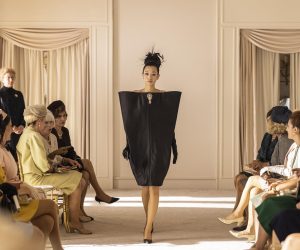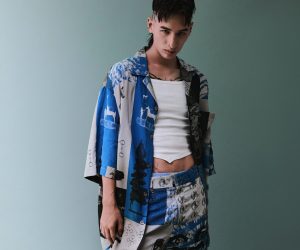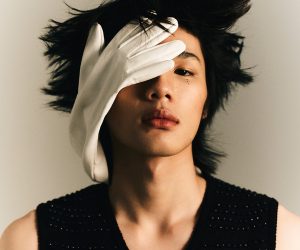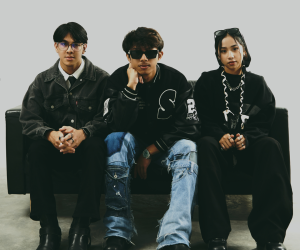
Anton Afganial is a prize-winning artist based in Indonesia, who has exhibited his works nationally, as well as in China. Through blending his in-depth knowledge of natural occurrences and social dynamics, with an opaque technique of vivid colours and bold outlines, Anton Afganial is revered for his vibrant portrayal of everyday life.
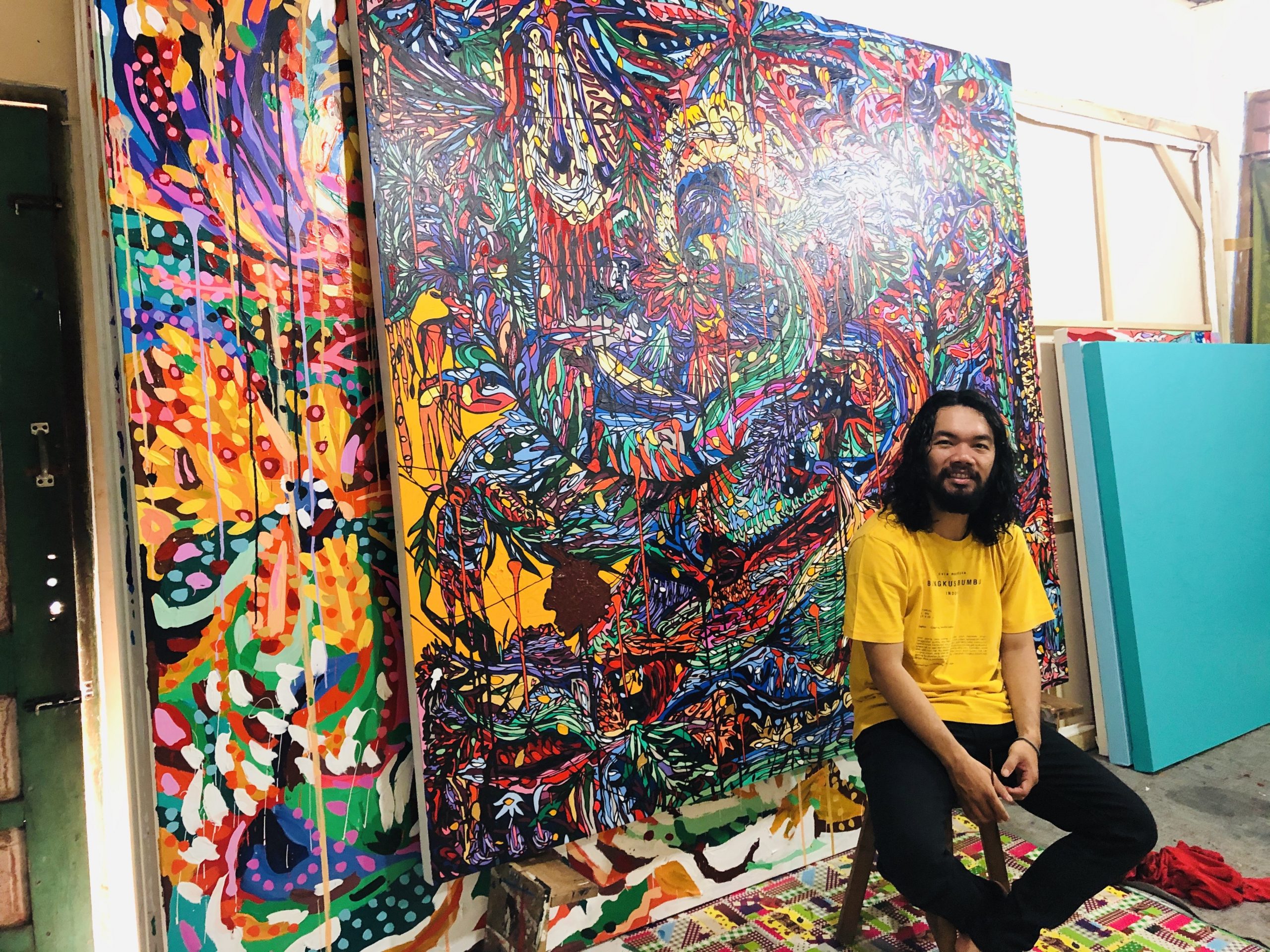
You were born in 1990 and you are now established in Jogjakarta which can be considered as the art capital of Indonesia. Tell us more about your first steps as an artist?
I was born on an island called Madura. In Coastal environment and strong culture. Once upon a time, I was told that the famous Indonesian artist Affandi had painted on our beach and this was the beginning of my curiosity about painting. Besides that, since I was a child, I was very interested in sketching and colouring activities. This was the beginning for me to enter the Indonesian Arts university with a major in fine arts.
Your art is vibrant with vivid colours! Would you say this is a modern reinterpretation of traditional Indonesian Batik?
Many viewers of my work think that the strokes I make on canvas resemble the patterns or nuances of Batik, which are known as traditional Indonesian patterns. I don’t think that is wrong. Only I form the lines and colours that dominate my work which is the result of the combination of my life background from the Madurese people who like vibratory and bold colours and my tendency to make curved lines and shapes.
You are always looking for new techniques in your art. How would you describe your style?
Mostly I’m using opaque techniques in my work. Where the vivid and intense colours were mixed up a lot, then lines were made to emphasize the object or deformation that I created on the canvas.
At the beginning of my work, I first define the shape and then emphasize it by giving colours. However, my technique in the last few years has mostly prioritized the distinctiveness of colours that stand out and take up space in our visual vision, while the lines are only a way to emphasize the deformation and wildness of the dynamics of the existing colours. Even some of my recent works no longer use lines, just “flying colours”.
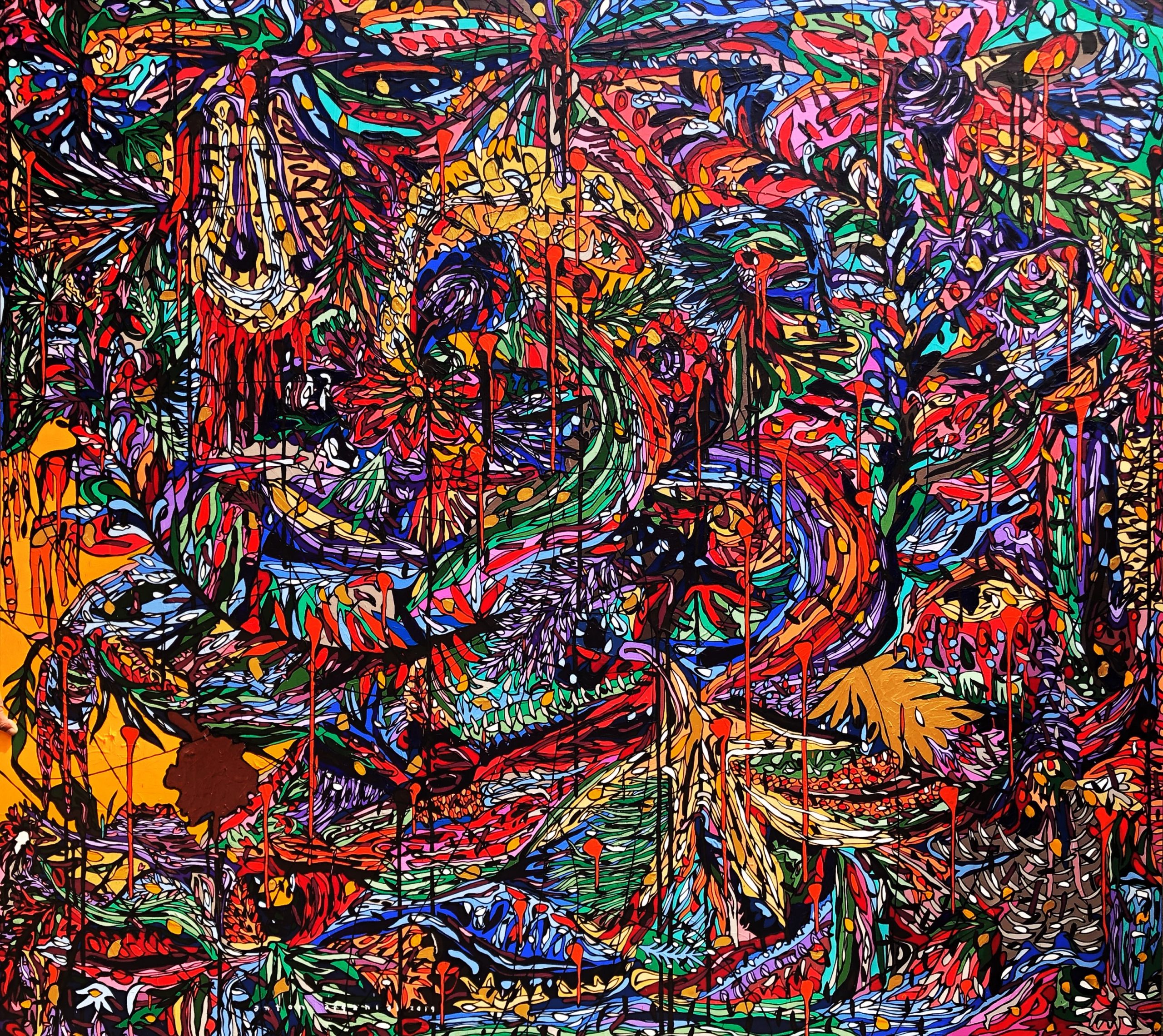
What is your creative process like? Where do you find your inspiration?
In my artistic process, I am intuitive, spontaneous and experimental. Where I try to reflect a moment or curiosity to enable final refinement and completion of an idea.
Because my first experience in the arts began when I was in college, so I was influenced by the academic learning process and the experience of contemplating during college. I read and discussed a lot at that time. After graduation, I started looking for new specializations to enrich my inspiration.
I am often moved by the situations that are happening around me such as human conflicts, love, balance of nature and technology, and identity to culture. My painting always captures energy, enthusiasm, emotion, contradiction, and curiosity.
Which is the role the artist plays in society?
The artist uses the work as a “lens”. The artist’s ability to capture the “gestures” of nature, society and even his own contemplation into what is called “art”. They are able to bring people to experience unusual and unique things like experience of curiosity, history, phenomena and even science.
Any current or past Indonesian artist who has influenced you?
I was inspired a lot by the famous Indonesian artist, Widayat. His works greatly influence my artistic process, especially the formation of flora objects, landscapes and their dynamics.
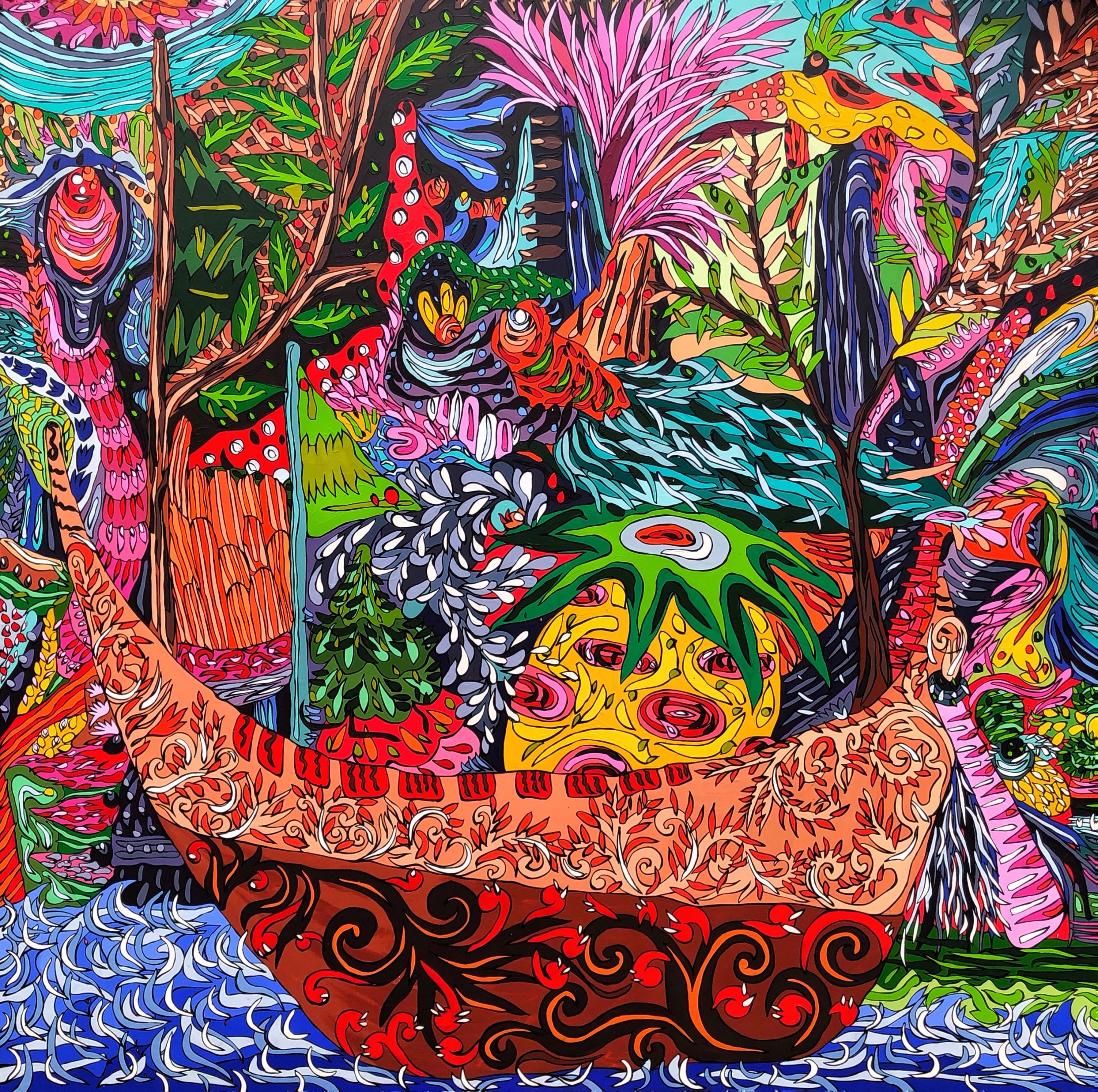
How do you view the current art scene in Indonesia? How important is the space given to artists in modern Indonesian society?
Previously, appreciation for artworks in Indonesia was mostly enjoyed only by the rich. Besides the number of artists was also small. The situation is very different from now where art connoisseurs can be from any circle. There is also great interest in art. The number of artists is also large along with the growth of art-based schools and campuses in this country. However, there are still very few room facilities for exhibitions or for selling their works. This makes it seem as if the work of art is still considered less important and living life as an artist opens up a promising way to earn a living.
The five words that best describe your art?
Energy, Nature, Human, Culture and Love.
In which city can we expect to see your next solo exhibition?
I plan to have two solo exhibitions next year in Jogjakarta and Jakarta
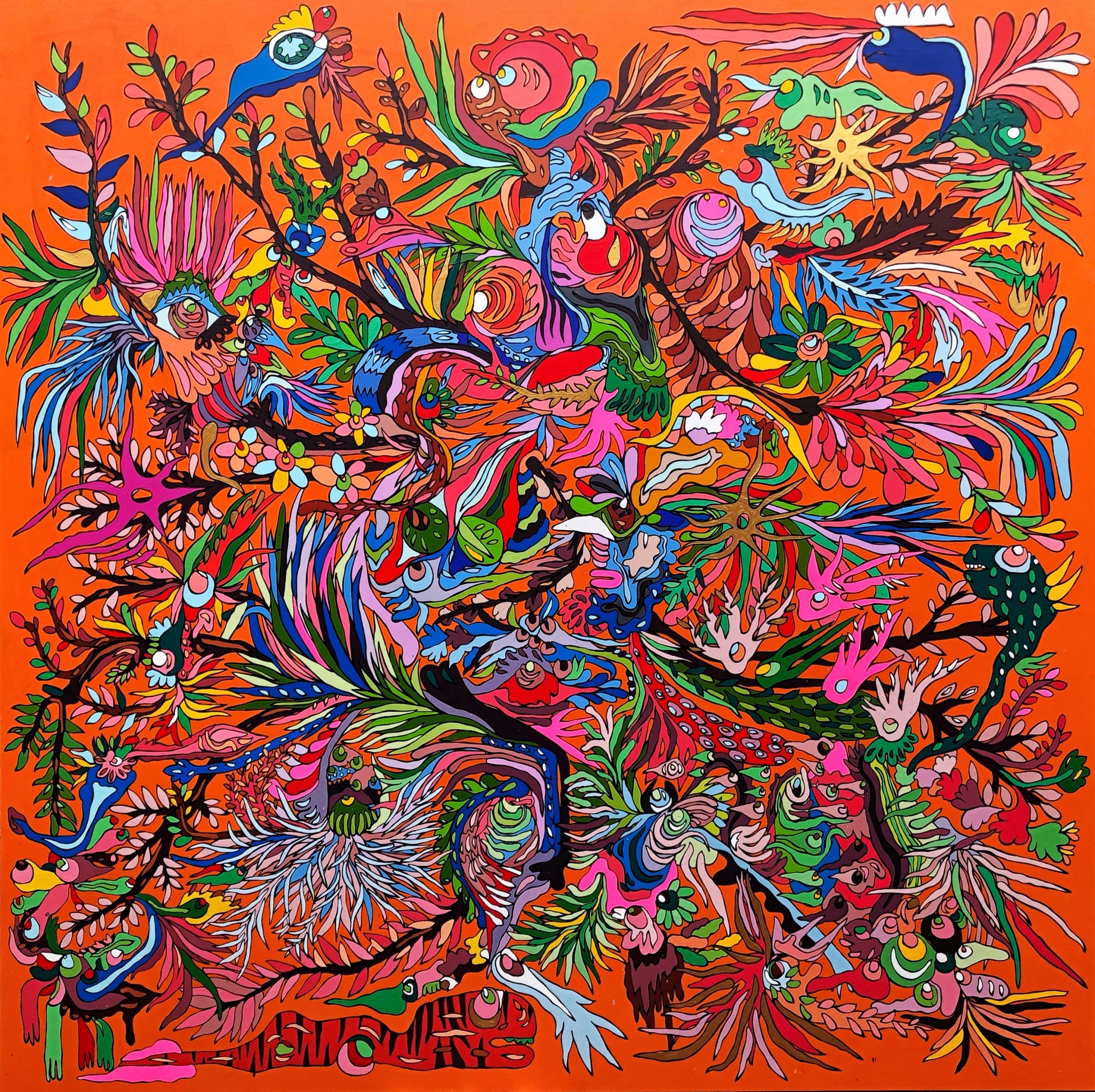
Where can we see some of your work online, are these for sale?
You can view my latest work on my Instagram account, or on the online art gallery, Singulart with a search for the name: Anton Afganial
All of my uploaded artworks are for sale.
If you were to name one mentor who has inspired you in your life and path as an artist, who would that be?
One of Indonesia’s most famous artists: Entang Wiharso. Once upon a time, I learned from him about starting life as an artist. At a very young age, I was given the understanding that being conscientious is not only about encouraging anxiety but also how we find answers to many questions that the language of art will be the same for all humans and that there is no border to separate art and human race. Besides that, I got answers about my doubts in the way of my life as an artist.
By Julia Roxan



